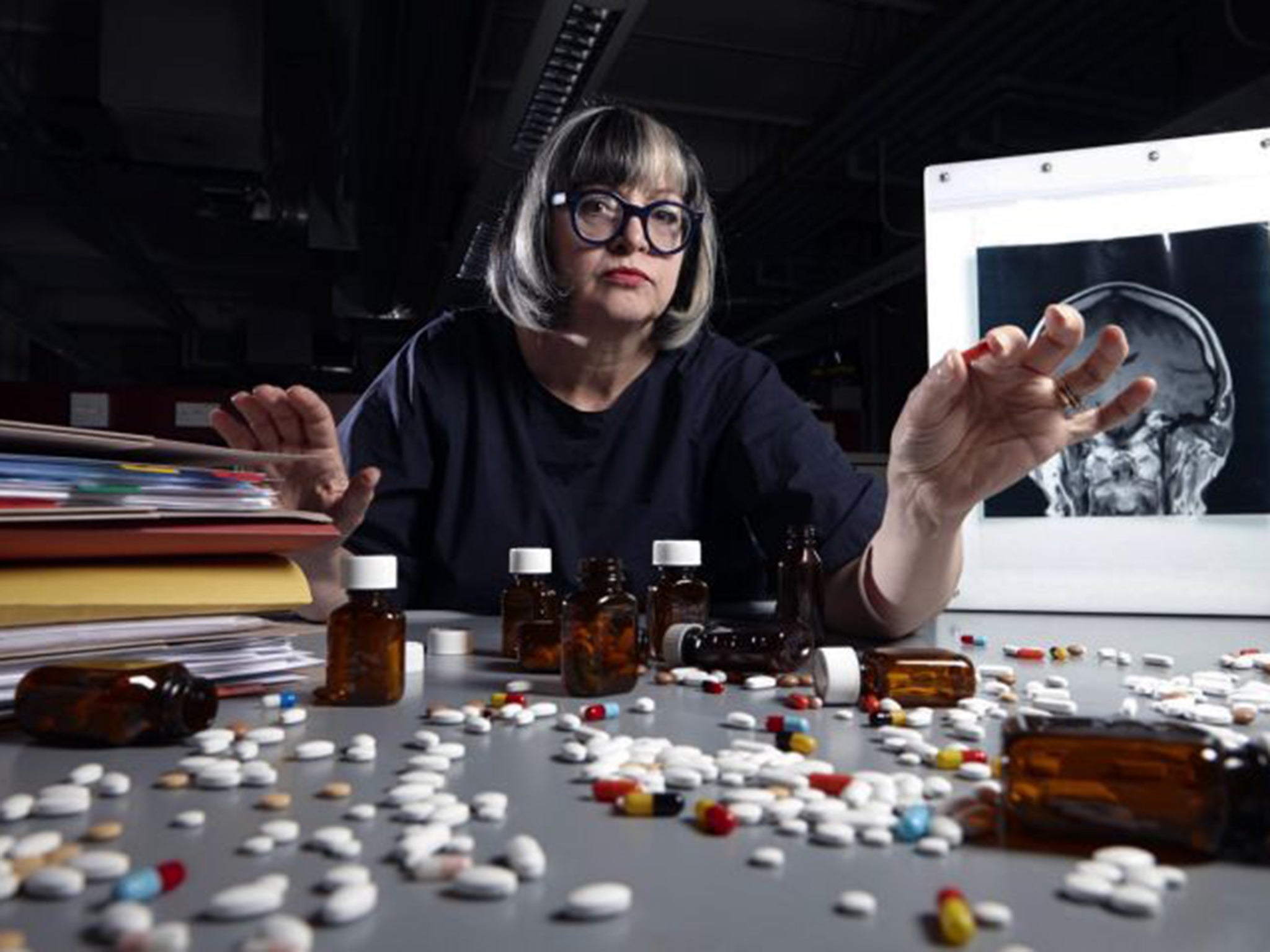Being Bipolar, TV review: At last, a hug that isn't a telly moment, but genuine, warm and human
Philippa Perry, psychotherapist and wife of Grayson, convinced three people with bipolar disorder to talk to her in front of the cameras about their illness

Your support helps us to tell the story
From reproductive rights to climate change to Big Tech, The Independent is on the ground when the story is developing. Whether it's investigating the financials of Elon Musk's pro-Trump PAC or producing our latest documentary, 'The A Word', which shines a light on the American women fighting for reproductive rights, we know how important it is to parse out the facts from the messaging.
At such a critical moment in US history, we need reporters on the ground. Your donation allows us to keep sending journalists to speak to both sides of the story.
The Independent is trusted by Americans across the entire political spectrum. And unlike many other quality news outlets, we choose not to lock Americans out of our reporting and analysis with paywalls. We believe quality journalism should be available to everyone, paid for by those who can afford it.
Your support makes all the difference.In the past few years, Channel 4's cameras have been inside bloody accident and emergency wards, across some of Britons' stranger ailments and embarrassing bodies and generally provided intimate portrayals of human bodies at their most vulnerable.
Bravo then to Philippa Perry, psychotherapist and wife of Grayson, for upping the ante – in a good way – and convincing three people with bipolar disorder to talk to her in front of the cameras about their illness.
Perry is interested to know what would happen if people with bipolar are treated not with bagfuls of prescriptions, but by therapy. That was actually more of a subplot though. The important element was presenting three people's different experiences of bipolar life, approached with the steady emotional approach of a therapist.
We met Paul, a businessman who'd won dozens of golf trophies as an amateur and made millions before being diagnosed. We met him during a manic period, where he told Perry his plans for turning a hotel into a big house for him, Moses and Jesus with a guest room for the Pope. (Paul, interestingly, has previously featured on TV – a 2004 True Stories film, A Bipolar Expedition, in which he invited 12 Ukrainian women to a castle in Jamaica with the hope of making one a wife.) Six months later, having been released from a mental health unit, we saw him when down – a different man –amazed at the incoherence of his manic persona.
Then there was Sian – who credited her prescriptions with saving her life – but needed something else to help her. Could therapy change her prospects?
Hardest to watch was 36-year-old musician Ashley, whose swings between mania and depression and back were so frequent that we literally watched them happening as he was being interviewed.
It felt incredibly intimate, and well done to the three people featured for being brave enough to show their struggles on TV. Normally it's a platitude, but you could see that watching this ought to increase public understanding of an often misunderstood condition. At least a notch.
Perry is great, too. Smart, human, compassionate, but not too compassionate. She hugged Sian after her successful first session of therapy and it wasn't just a telly moment, but a genuine, warm, human one.
And some going, too, that two of Channel 4's current best documentarians share a bed.
Join our commenting forum
Join thought-provoking conversations, follow other Independent readers and see their replies
Comments